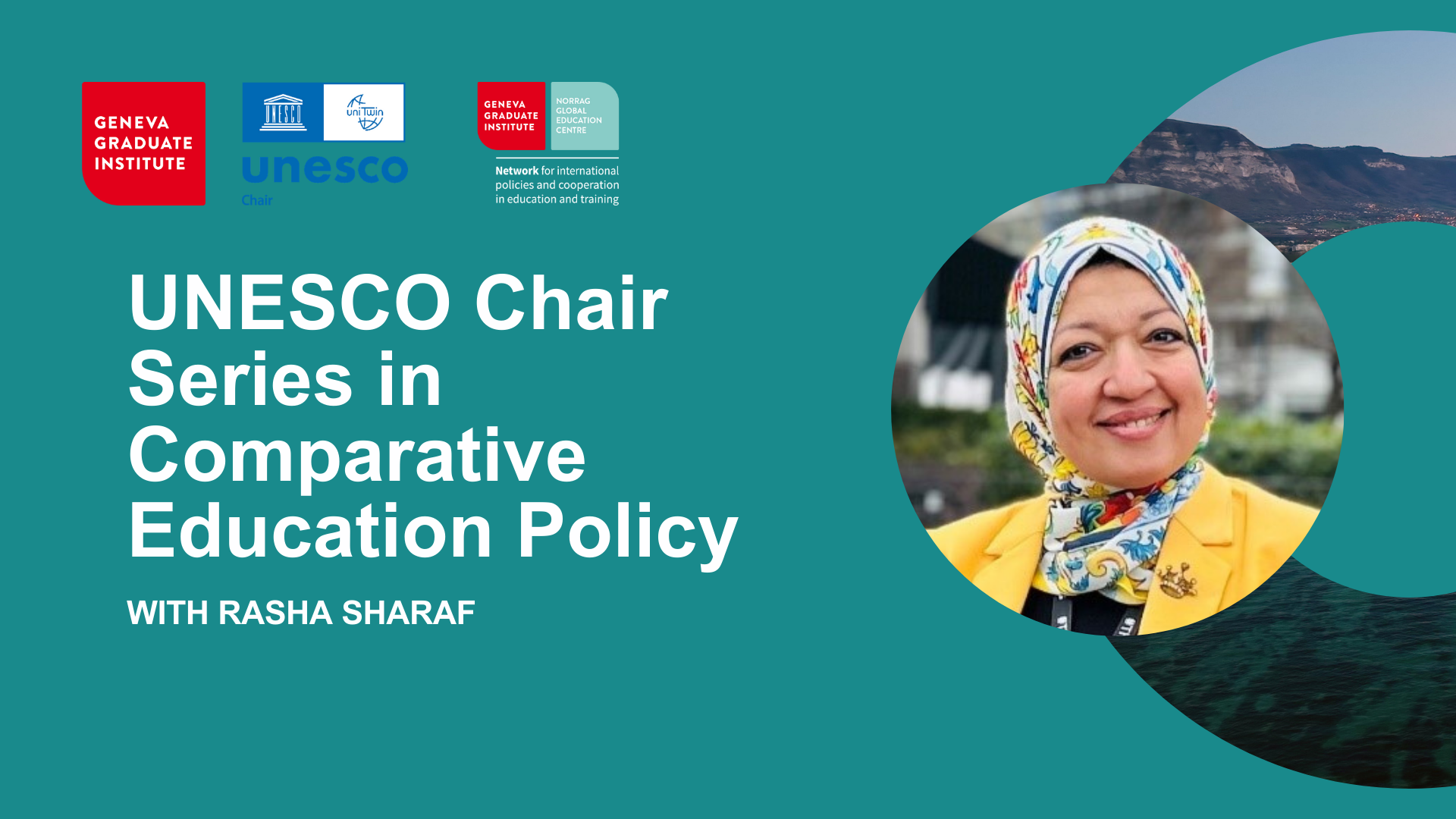Event Highlights: UNESCO Chair Series in Comparative Education Policy with Rasha Sharaf
Lecture with Rasha Sharaf
Date: Monday 7 October 2024
Time: 12.30pm to 2pm CET
Location: S5, Maison de la Paix & Online (webex)
On 7th Oct 2024, NORRAG Global Education Centre co-hosted its first session of the UNESCO Chair Series in Comparative Education Policy with the UNESCO Chair in Comparative Education Policy. The session was co-sponsored by Global Partnership for Education (GPE)’s KIX EMAP Hub along with Geneva Graduate Institute’s Global Governance Center, International Development Studies and International Relations/Political Science Departments. Chaired by Chanwoong Baek, UNESCO Co-Chair in Comparative Education Policy and Academic Director of NORRAG, this hybrid session first explored the thematic focuses of NORRAG and the UNESCO Chair in Comparative Education Policy on the use of evidence and data in education policy, and then introduced the newly launched UNESCO Chair Series. The distinguished guest speaker Prof. Rasha Sharaf led the lecture, emphasizing how the promising and glittery future of international agendas has a controversial and contradictory relationship with the ground realities in the Global South. Furthermore, the relationship between these phenomena and equitable knowledge production, participatory policy choices and evidence-informed contributions was explored through the mutual engagement of 115 participants, with Russian and Arabic interpretation provided.
Starting with a broader discussion of globalization theories, Prof. Sharaf revealed the political and economic forces underlying policy choices of the countries in the Global South with a keen focus on the process of knowledge flow. She presented AI-generated data and content analysis of renowned organizations such as the United Nations Educational, Scientific and Cultural Organization (UNESCO), the Organization for Economic Co-operation and Development (OECD) and the World Bank, exploring the hegemony they retain over the production of knowledge and the criteria for successful education systems through research databases. Addressing the prior perceptions of the audience about ‘western’ knowledge, she introduced the concept of ‘knowledge brokerage’. With a special mention to NORRAG’s #TheSouthalsoknows initiative, she examined how knowledge seekers could ultimately be knowledge producers and the role certain western dynamics could play in brokerage.
In support of bridging the knowledge gap, she provided two cases. In the case of Iraq, the global educational trends and competitions (i.e. TIMMS, QAS rankings etc.) were posed to sustain the 21st century education skills agenda. However, local needs were much more focused on increasing educational access than chasing global rush. Thus, the inclusion of Out of School Children (OOSC) became a priority over acquiring international rankings. She acknowledged the collaborative efforts of UNESCO’s International Institute for Educational Planning (IIEP) in knowledge brokerage by empowering local administrative staff in the particular country.
She then shared the case of Maldives, particularly focusing on secondary school education crises. In this case, GPE’s KIX EMAP addressed the knowledge barrier through Learning Cycles that provided contemporary skills and expertise to local actors via rigorous training. These Learning Cycles were multi-lateral and encompassed thematic courses of Equitable Access to Education, Integration of 21st Century skills in curriculum, Education for students with complex learning profiles: Policy options for Maldives and Scaling Teacher Professional Development in Maldives. Incorporating geospatial data and adjunct efforts of UNESCO IIEP, Learning Cycle 2 scaled up lower secondary schools and students to higher ones with provision of open resources and facilities through policy change. These were illustrations of co-constructing knowledge by expanding learning opportunities and enhancing economic prospects, while simultaneously minimizing the knowledge gap and fulfilling local needs.
Following her reflections as Knowledge Lead at the KIX EMAP Hub in these two cases, Prof. Sharaf extracted some tangible strategies for more inclusive, democratic and rational policy decisions. While systemic transformation via curriculum reform involving apt planning, designing, monitoring and implementing was discussed, on other hand, respective stakeholders’ participation, evidence-based policy making, inclusivity of policy design and capacity strengthening also appeared as pathways to challenge the Western construct of predefined policy goals.
Moreover, Prof. Sharaf welcomed questions from the audience that explored context-appropriateness and types of evidence, misconceptions related to the global versus local binaries of knowledge, education as a tool for bridging conflict and reducing inequalities resulting from the power dynamics of certain policies and knowledge accumulation. In this way, policy adapting and piloting western designs in relevance to deeply rooted local practices and needs were highlighted throughout the session. These topics were further explored the next day at the Open Café where students of the Geneva Graduate Institute engaged in lively discussions with Prof. Sharaf at the Fab.
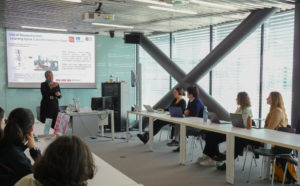
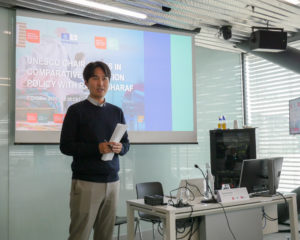
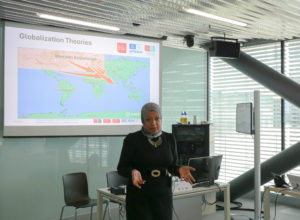
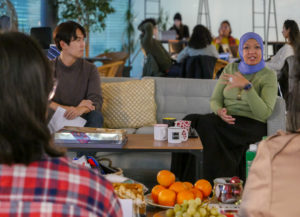
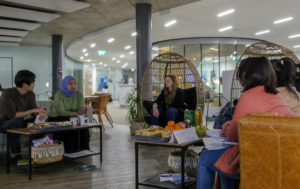
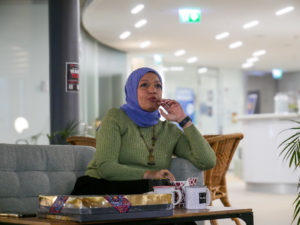
UNESCO Chair Series in Comparative Education Policy “Promissory Agendas, National Reactions: Global Governance, Knowledge Equity, and Democracy”
With just a few years left to shape a new international education agenda, the UNESCO Chair series in Comparative Education Policy invites scholars, decision-makers, and public intellectuals from the Global South to share their analyses of the Sustainable Development Goals (SDGs) and broader international agendas. There is an emerging body of literature in political science, international relations, and comparative policy studies on the promissory legitimacy of global actors (Beckert, 2020; Berten & Kranke, 2022; Robertson & Beech, 2023). How do international and national actors navigate uncertain futures, shape national developments towards their pre-defined future, or correct wrong projections that have negatively impacted present policy decisions? Perhaps more than any other public sector, education is expected to prepare individuals for the future. Even international organizations have made it their project to specify that future in terms of 21st century skills (OECD) or human capital needed for economic productivity (World Bank), education ultimately suffers from a technology deficit. The deficit becomes glaring If we conceive of technology as a device that connects inputs with outcomes because educating subjects in the present (input) for a predefined, internationally agreed upon future (outcomes) is in and of itself counterintuitive. Therefore, education lends itself for reflecting on the promissory legitimacy of international organizations. These are only a few questions that this new area of research is able to address and thereby our understanding of tools of global governance.
This series, organized by the UNESCO Chair in Comparative Education Policy and NORRAG, will navigate the tensions and inequalities inherent in the global aid architecture and discuss the gap between national priorities and global scripts in international development.
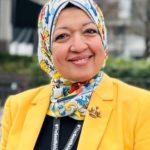 Rasha Sharaf is a Professor of International and Comparative Education and Education Administration at Helwan University in Egypt. She serves as the KIX/EMAP Knowledge Lead for South Asia, the Middle East, and North Africa subregion, as well as the NORRAG Regional Editor for the Arabic special issues. Her research interest is in planning of education systems, policy studies and development. Sharaf has consulted and advised in over 15 countries in MENA and South Asia.
Rasha Sharaf is a Professor of International and Comparative Education and Education Administration at Helwan University in Egypt. She serves as the KIX/EMAP Knowledge Lead for South Asia, the Middle East, and North Africa subregion, as well as the NORRAG Regional Editor for the Arabic special issues. Her research interest is in planning of education systems, policy studies and development. Sharaf has consulted and advised in over 15 countries in MENA and South Asia.
Co-host:
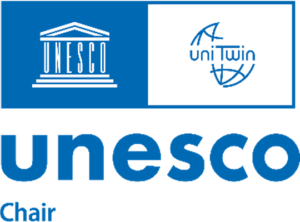
Co-sponsors:


